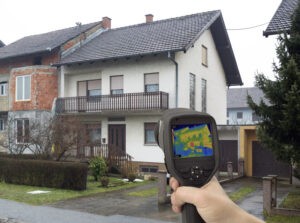Energy efficiency has become a big concern over the last decade or two, from window insulation to renewable energy sources. One area that is often overlooked when thinking about making a home more energy efficient is the garage.
If your garage is attached to your home, you should ensure that it is properly insulated. Traditionally, insulation was less of a concern for garage doors. As a result, air can often travel through garage door openings more freely, bringing in cold or warm air (depending on the season) from the garage door into your living area. When checking your house’s energy efficiency, it is therefore also important to check your garage door energy efficiency.

An insulated garage door will reduce the transfer of air not only from the outside to the inside but also the other way around. The less heat can escape (and the less cold can creep in), the more money you will save on your energy bill.
It should be noted though, that air can also travel through the ceiling of the garage into the floor of the room above. Insulation should, therefore, not be limited to the garage door but applied throughout all areas of the garage to keep it temperature-controlled and energy-efficient.
A Quieter, More Pleasant Workspace
Insulated garages will not only save you money, but also create a more pleasant workspace. Increasing your garage door energy efficiency not only keeps the temperature in your garage well-regulated. Insulating your garage door also makes it generally quieter and creates a more attractive interior than a non-insulated door, all of which turns your garage into a pleasant and quiet workspace.
If you are looking to increase your home’s energy efficiency by insulating your garage doors, contact the Colorado Overhead Door company today for a free estimate on our residential services.
